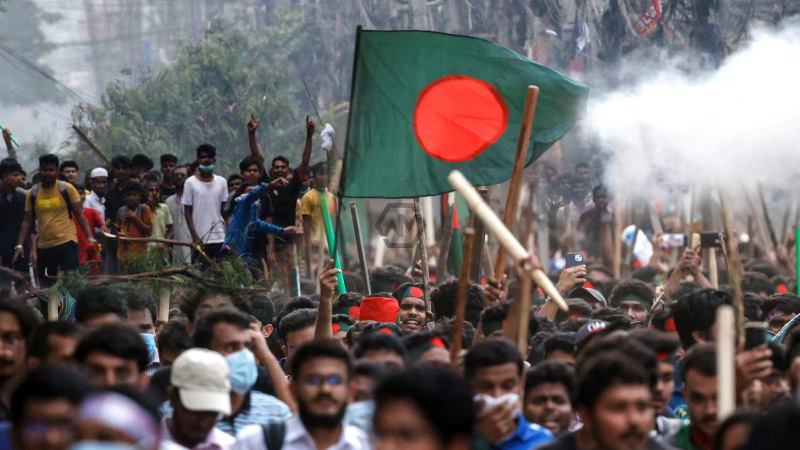- Tensions between two BNP factions lead to violent clashes in Shyamnagar, Satkhira.
- Section 144 imposed, but a rally sparks violence, injuring 22, including police officers.
- Dispute centers around the formation of local BNP committees, exacerbating internal party divisions.
The BNP factions in Shyamnagar, Satkhira, clashed on January 22, despite the imposition of Section 144, which prohibits public gatherings. The violence stemmed from internal disputes over the formation of local BNP committees, with two rival groups escalating tensions.
The Upazila administration had hoped to de-escalate tensions with the imposition of Section 144, but the situation worsened when a stick was thrown during the procession. Police and security tried to intervene, but the conflict continued, highlighting the deepening divide within the party.
Violent BNP Factional Clash in Shyamnagar Leaves 22 Injured, Section 144 Imposed
Tensions in Shyamnagar, Satkhira, culminated in violent clashes between two rival factions of the Bangladesh Nationalist Party (BNP) on January 22, despite the imposition of Section 144 to prevent public gatherings. The violence erupted after members of the newly formed BNP committee organized a rally, which was opposed by the followers of the dissolved committee. This led to a confrontation, escalating into a clash that left 22 people injured, including police officers.
The conflict stems from a long-standing power struggle within the BNP in Shyamnagar. The dispute became more intense after the cancellation of local BNP committees, which led to rival groups, led by Abdul Wahed and Solaiman Kabir, taking opposing stances. The situation became more volatile after a peace rally organized by Kabir’s faction was confronted by Wahed’s supporters, escalating the conflict further.
Despite the imposition of Section 144 in the municipal area, which banned public meetings and processions, the violence continued when a stick was thrown during a procession, sparking the physical altercation. The situation prompted the intervention of local authorities, including Upazila Nirbahi Officer Rony Khatun and Assistant Commissioner Abdullah Al Rifat, but the efforts to restore order were insufficient.
With the internal strife intensifying, the BNP faces significant challenges in managing factional disputes and restoring unity. These clashes could have broader implications for the party’s stability, particularly as it navigates political challenges in the region. The violent episode highlights the fragility of the party’s leadership and the potential for further unrest if the divisions are not addressed.
The violent clashes in Shyamnagar underline the deepening rifts within the BNP, with leadership disputes fueling unrest. Without reconciliation, these tensions could undermine the party’s unity and affect its future political prospects.
“The situation was normal. However, a sporadic incident happened while the members of the rival groups were returning home in the evening.”



